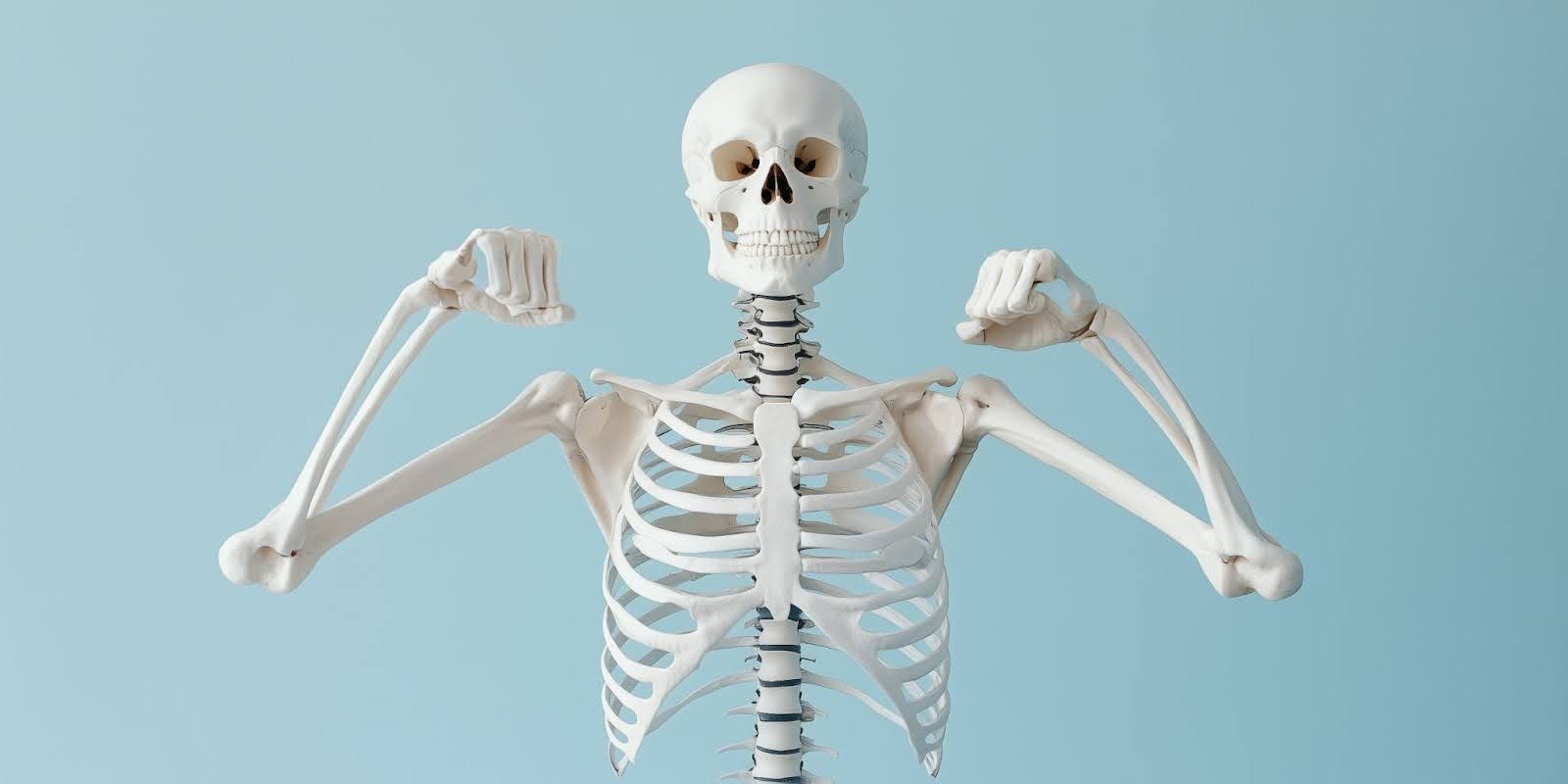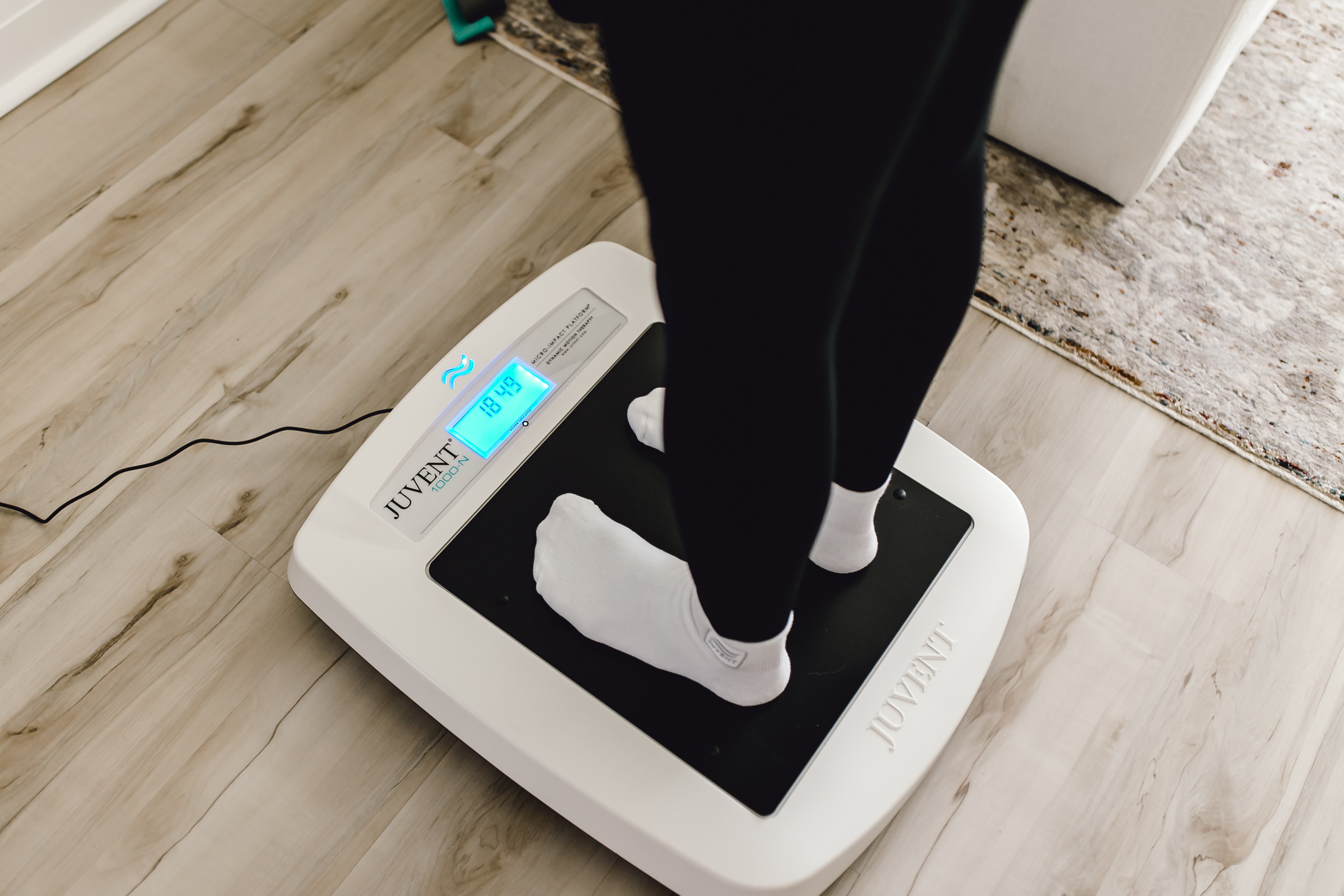When most people think of bones, they imagine a rigid structure that holds us upright. While it’s true that the skeleton provides the structure and support we need to stand, move, and function, there’s much more going on beneath the surface. The benefits of the skeletal system extend far beyond posture and protection. In fact, your bones are active, dynamic tissues that contribute to hormone regulation, immune health, energy metabolism, and more. How does the skeletal system support framework and function, though? It’s time for this often-overlooked system to get daily care that’s more than just calcium supplements.
Skeletal System Function: It’s More Than You Think
At its core, the skeletal system’s function is to provide structure. It forms your body’s internal framework, protects vital organs, anchors muscles, and allows movement. There’s more to it, though. Your bones are also living tissue, constantly being broken down and rebuilt in response to stress, nutrients, and physical demands. Let’s dive into the lesser-known roles your bones play in overall health.
- Blood Cell Production: Your bones are home to bone marrow, where red blood cells, white blood cells, and platelets are made. These cells are essential for carrying oxygen, fighting infection, and healing wounds.
- Blood Sugar Balance: Research by Shao et al. shows that the skeletal system plays a role in glucose metabolism. When bones are properly stimulated, they help regulate how the body uses and stores sugar.
- Stem Cell Generation: One of the benefits of the skeletal system is that it’s a factory for mesenchymal stem cells, which can become bone, cartilage, or fat. These stem cells are crucial for healing and regenerating tissues, especially after injury or as we age.
- Support for Muscles and Nerves: Strong bones mean strong musculoskeletal support, which helps prevent injury and maintains alignment and balance. Without proper skeletal integrity, muscles can weaken, and nerves may become compressed or inflamed.
How Does the Skeletal System Support the Body Through Movement?
Bones need impact: safe, mechanical loading that tells bones to stay active, strong, and functional. Without stimulation, bones weaken. That’s why astronauts lose bone density in space and why sedentary lifestyles accelerate bone loss here on Earth, which can lead to fractures or breaks. Bones require regular impact to maintain their health, just like muscles need resistance and hearts need cardio. Impact is gained through activity that creates force, like walking or lifting weights, but that isn’t always easy or accessible, depending on your body. That’s where Juvent comes in.
Getting the Right Impact for Skeletal Support
Juvent’s Micro-Impact Platform® delivers gentle, personalized mechanical stimulation that mimics the natural impact of walking several miles each day. Our safe and effective form of mechanotransduction encourages bone activity without stress or strain on joints. The platform calibrates to your body’s unique composition and hydration to deliver energy at 32 to 37 Hz, which is well within OSHA safety guidelines. It encourages skeletal loading, circulation, and lymphatic flow that support daily movement, especially for people with limited mobility or joint sensitivity. By using Juvent regularly, you get skeletal system support that plays a foundational role in your broader wellness strategy.
Protect Your Skeleton
The skeletal system supports the body in more ways than most people realize. From hormone balance and immunity to stem cell production and movement mechanics, your bones are central to total-body wellness. By nourishing your bones with nutrients, keeping them active through safe impact, and understanding their full range of responsibilities, you’re not just building a stronger frame; you’re investing in the health of your entire body. Embrace the Micro-Impact Platform and see the difference that skeletal health makes for your quality of life.
Explore the benefits of using the Juvent Micro-Impact Platform →
Sources:
https://pmc.ncbi.nlm.nih.gov/articles/PMC4383405/
https://pmc.ncbi.nlm.nih.gov/articles/PMC4360182/




Share:
Natural Remedies That May Complement Your Joint Pain Management Plan
Biohacking Your Mornings: Small Changes With a Big Impact on Energy and Focus